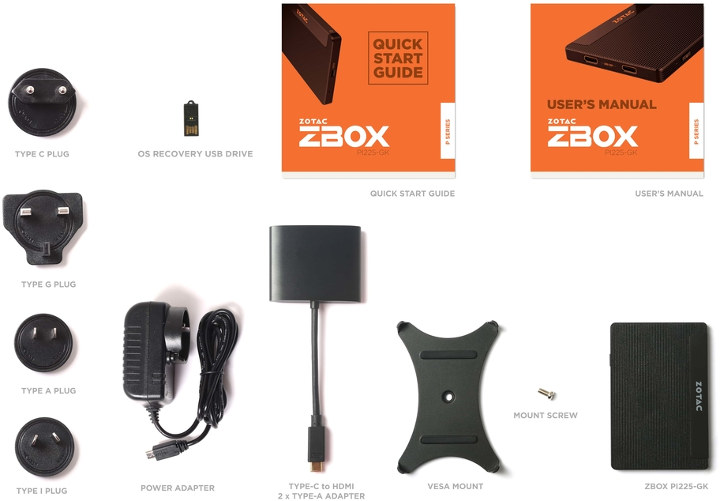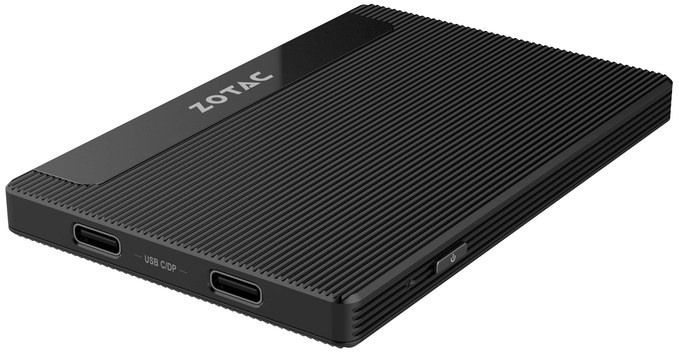Zotac PI225 mini PC was launched last year with an Intel Celeron N3350 dual core “Apollo Lake” processors, and its main feature was its form factor, as the computer is about the size and thickness of a standard 2.5″ SSD. Linuxium reviewed Zotac ultrathin mini PC with both Windows 10 and Ubuntu, and found out Turbo mode was disabled by default in BIOS in order to keep temperature in check. So the form factor did cost some performance to the system compared to similar specced but thicker computers.
The company showcased the similar Pi226 mini PC at CES 2018 last January with a faster Celeron N4000 dual core Gemini Lake processor, and finally it’s now available as Pico Pi225-GK (ZBOX-PI225-GK-W2B) on Tiger Direct and some other resellers for about $230 plus shipping.
Pico Pi225-GK specifications:
- SoC – Intel Celeron N4000 dual core “Gemini Lake” processor @ 1.1 / 2.6 GHz with 12 EU Intel UHD Graphics 600 (6W TDP)
- System Memory – 4 GB LPDDR4
- Storage – 32 GB eMMC flash, micro SDXC slot
- USB – 2x USB 3.0 type C connectors with data and DisplayPort Alternate mode support
- Connectivity – 802.11ac WiFi 5, and Bluetooth 5
- Misc – Power button, power LED
- Power – 1x micro USB port
- Dimensions – 95.4 x 63 x 8 mm (PI225 Apollo Lake had the same thickness, but was a little smaller)

The computer comes pre-installed with Windows 10 Home 64-bit, and ships with a universal power adapter with multiple plugs, a mounting bracket and screws, a USB Type-C to HDMI / 2 x USB Type-A adapter, a OS Recovery USB flash drive, a Quick Start Guide, a user manual and a warranty card.
More details may be found in the product page.

Jean-Luc started CNX Software in 2010 as a part-time endeavor, before quitting his job as a software engineering manager, and starting to write daily news, and reviews full time later in 2011.
Support CNX Software! Donate via cryptocurrencies, become a Patron on Patreon, or purchase goods on Amazon or Aliexpress






Why is this powered by a MicroUSB plug in 2018? Type C with Power Delivery is a more flexible standard for powering devices, regardless of form factor, type or power consumption.
microUSB shouldn’t be used for anything ever again, it was a bad idea from the beginning being much too fragile.